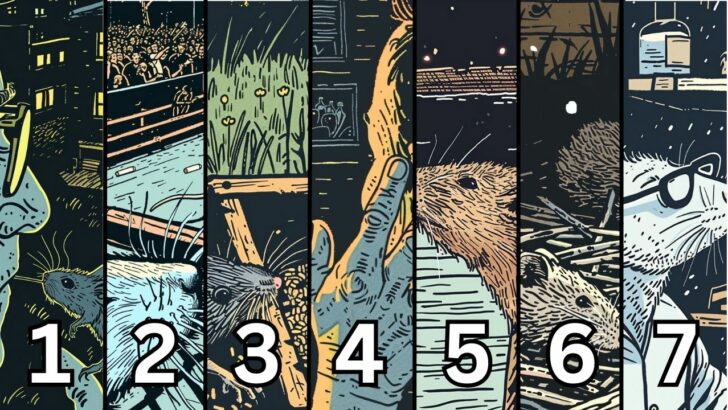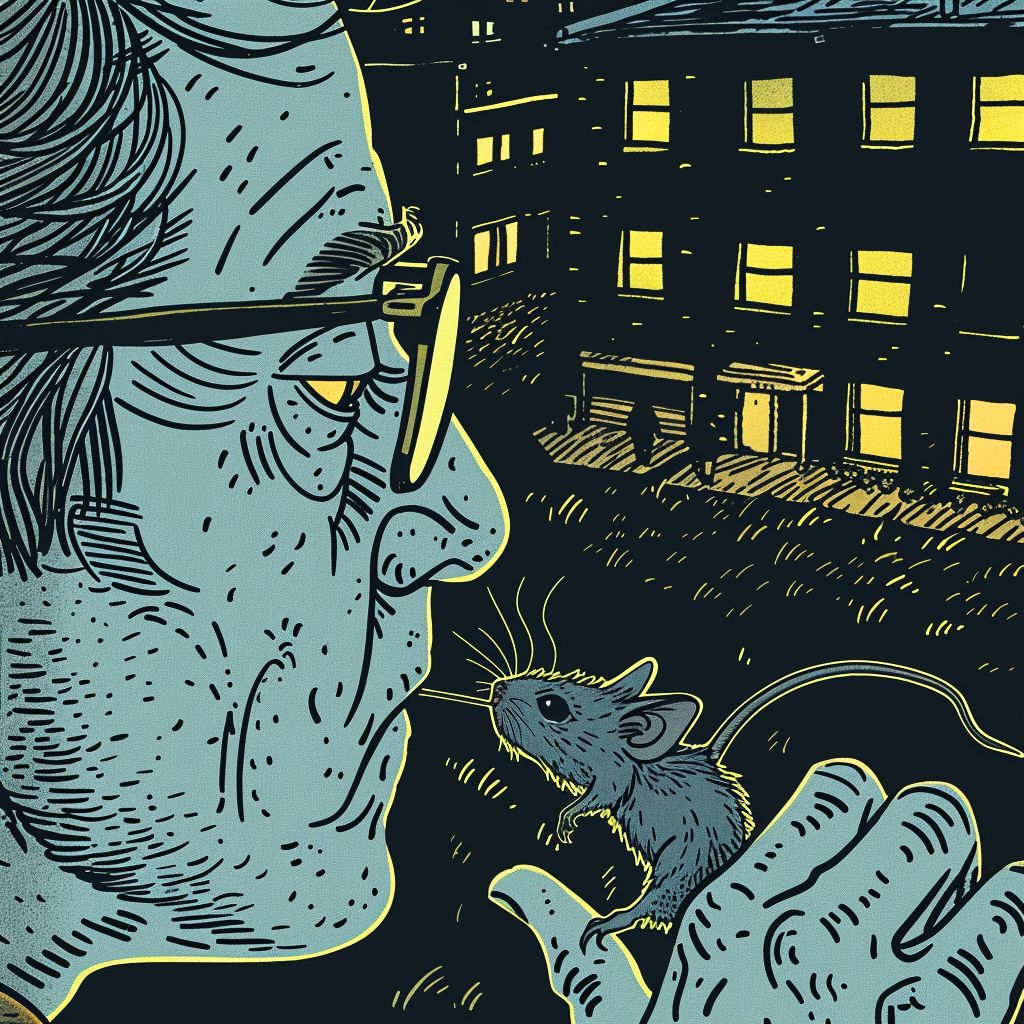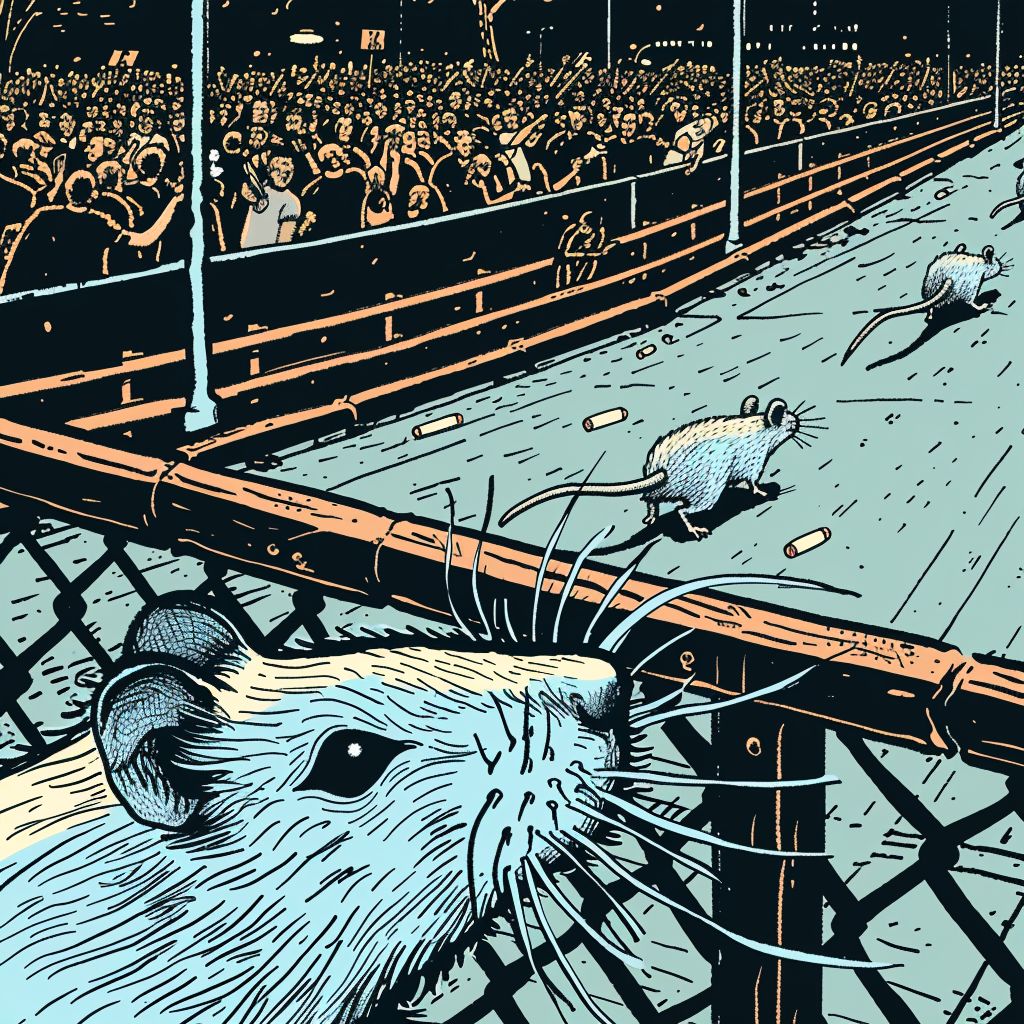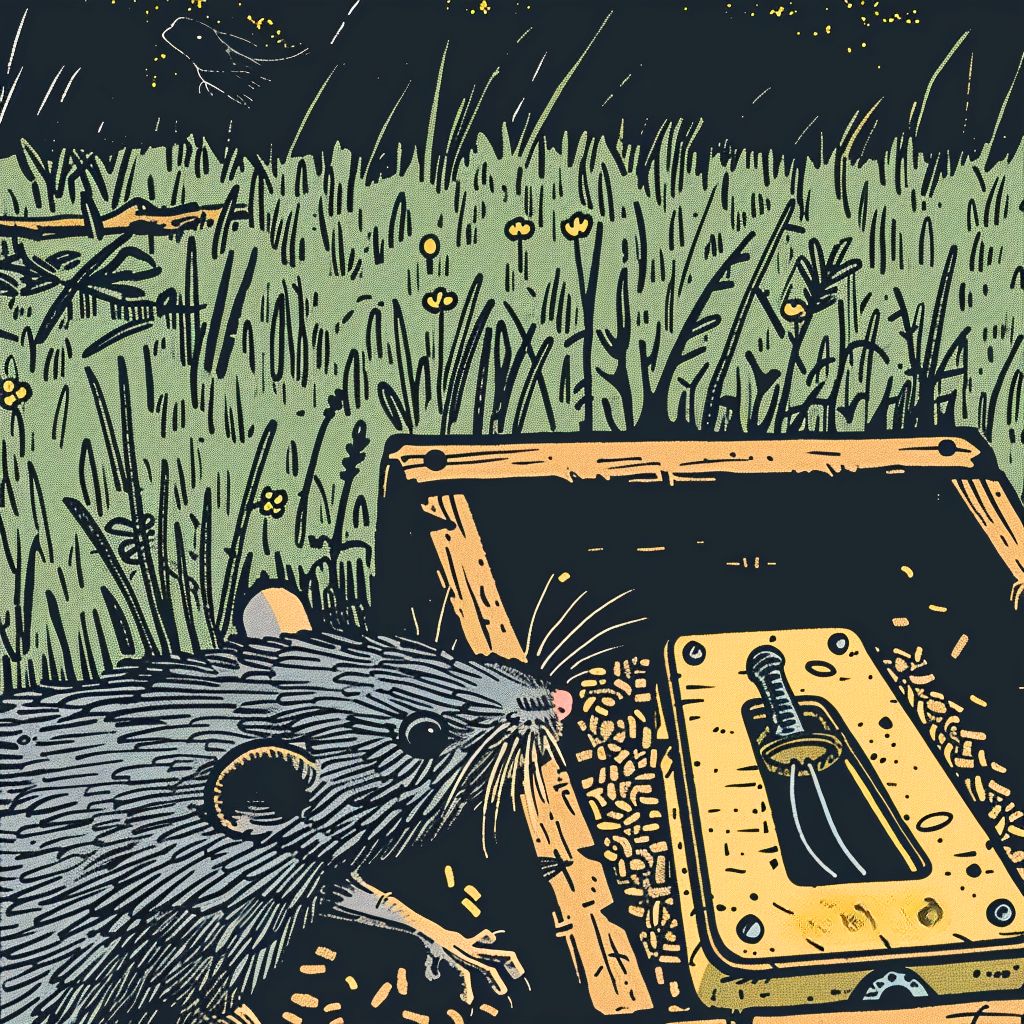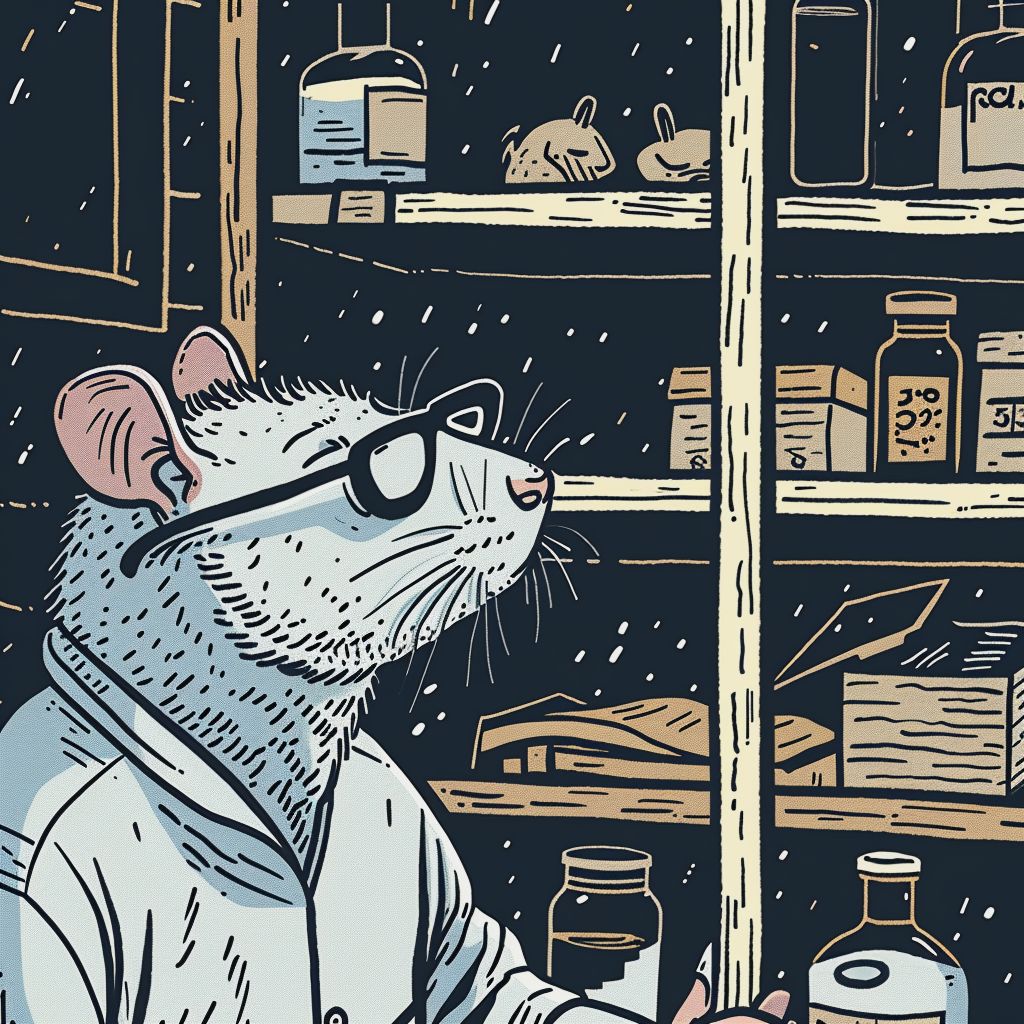With their knack for survival in the most challenging environments, rats have skittered their way into the English language, leaving behind a trail of idioms as intriguing as their nocturnal journeys.
These creatures, often seen in a less-than-favorable light, are the unlikely muses for expressions that capture the essence of human strategies, betrayals, and social maneuvers.
Here’s a collection of 7 rat idioms that are easy to picture and rich with meaning. They illustrate the cunning and complexity we sometimes find in our own lives.
1. Smell a Rat
When you “smell a rat,” it’s not about catching a whiff of rodent in the air; it’s about sensing deception or feeling that something in the situation just isn’t right.
This idiom taps into the wary nature of rats, creatures known for their keen survival instincts, suggesting a level of suspicion or distrust.
It’s a vivid way to describe that intuitive nudge we sometimes get, telling us to look closer or question deeper before proceeding.
- Example 1: After reviewing the too-perfect investment proposal, she couldn’t shake off the feeling that she smelled a rat, prompting a deeper investigation.
- Example 2: The sudden friendliness of a known rival made him smell a rat, wary of the underlying intentions.
2. Rat Race
The “rat race” is a phrase that paints the hustle and bustle of competitive environments, especially in the workplace, as a never-ending struggle similar to rats frantically running through a maze in search of cheese.
This idiom reflects on the relentless pursuit of success, often at the cost of personal happiness or life balance, emphasizing such competition’s exhausting and sometimes futile nature.
- Example 1: Realizing that the rat race was consuming all his time and energy, he decided to pursue a more balanced lifestyle.
- Example 2: The documentary on corporate culture revealed just how many people feel trapped in the rat race, yearning for a way out.
3. Like a Rat in a Trap
Feeling “like a rat in a trap” describes a situation where one feels completely stuck, with no apparent way to escape.
It draws on the image of a rat caught in a trap, unable to free itself, to evoke feelings of frustration and helplessness.
This idiom is often used to express being in a bind or facing a dilemma that seems impossible to resolve.
- Example 1: Faced with a contract she couldn’t break without severe penalties, she felt like a rat in a trap, unsure of how to proceed.
- Example 2: The more he tried to explain, the more he felt like a rat in a trap, his words only complicating the situation further.
4. Rat Someone Out
To “rat someone out” doesn’t involve any actual rodents; instead, it’s about betrayal, specifically exposing someone’s wrongdoing or secrets.
This idiom likely derives from the behavior of rats, which some consider opportunistic and treacherous.
It vividly captures the act of turning against someone by revealing information that was supposed to be confidential.
- Example 1: Despite the team’s pact to stick together, one member decided to rat the others out to save himself from punishment.
- Example 2: She wrestled with guilt after ratted her coworker out for stealing, knowing it was the right thing but dreading the fallout.
5. Rats Deserting a Sinking Ship
This idiom draws a parallel between the actions of rats, said to flee a ship before it sinks, and people who hastily abandon a failing enterprise or leader.
It speaks to a survival instinct, yes, but also hints at opportunism and disloyalty, suggesting that loyalty is often contingent on success or stability.
- Example 1: As the company’s financial woes became public, it wasn’t long before the senior executives began deserting like rats from a sinking ship.
- Example 2: The politician watched in dismay as his closest advisors left him one by one, like rats deserting a sinking ship, in the wake of the scandal.
6. Rat’s Nest
A “rat’s nest” refers not just to the literal nests where rats live, which can be tangled and disorganized, but to any situation or place that’s in a state of chaos.
This idiom is a colorful way to describe messiness or complexity that’s difficult to sort out, often requiring patience and determination to untangle.
- Example 1: Opening the hood of the used car he’d just bought, he found a rat’s nest of wires and hoses, none of which were in good condition.
- Example 2: The new manager inherited a rat’s nest of financial mismanagement that would take months to organize and correct.
7. Lab Rat
Originally referring to the rodents used in scientific experiments, being a “lab rat” has come to describe anyone who feels they’re being experimented on, often without their full consent or understanding.
It’s a somewhat humorous but poignant way to talk about feeling like a test subject in life’s various trials, whether in the workplace, personal relationships, or health matters.
- Example 1: New interns at the tech startup joked about being lab rats as they were shuffled through various departments to find their best fit.
- Example 2: Participating in the clinical trial made her feel like a lab rat, though she knew her involvement could help advance medical research.
Life Lessons via Rat Idioms
These idioms, drawn from the world of rats, offer a lens through which we can view the complexities of human nature and our societal structures.
They remind us of the cunning required to navigate life’s mazes, the feelings of entrapment that can arise in challenging situations, the betrayal that can come from within our ranks, and the instinct to flee from sinking ships.
Yet, they also touch on the messiness of life that everyone must sort through and the feeling of being part of experiments we don’t fully understand.
Like the rats that inspire these phrases, we, too, learn to adapt, survive, and occasionally thrive amidst the chaos.

Hey fellow Linguaholics! It’s me, Marcel. I am the proud owner of linguaholic.com. Languages have always been my passion and I have studied Linguistics, Computational Linguistics and Sinology at the University of Zurich. It is my utmost pleasure to share with all of you guys what I know about languages and linguistics in general.

